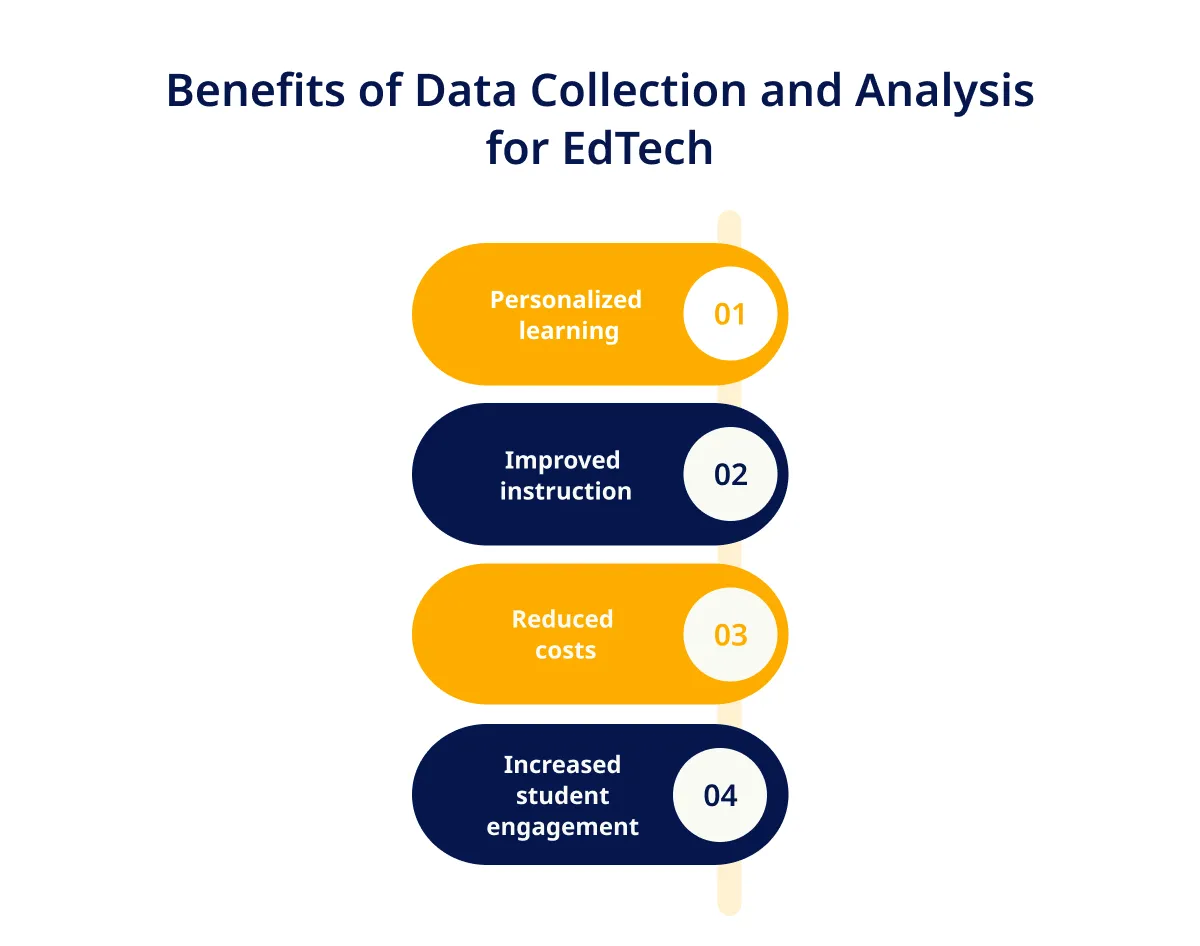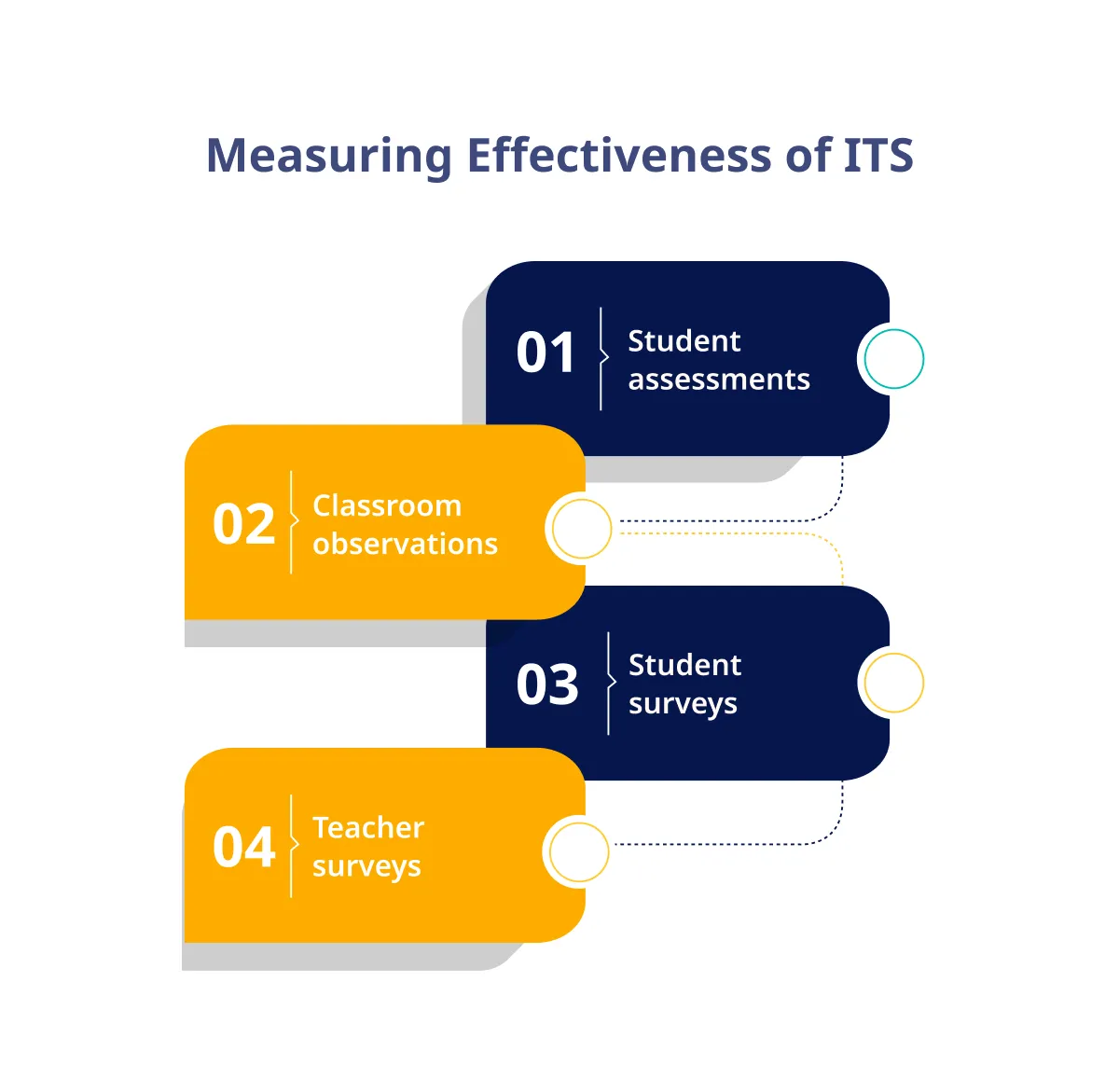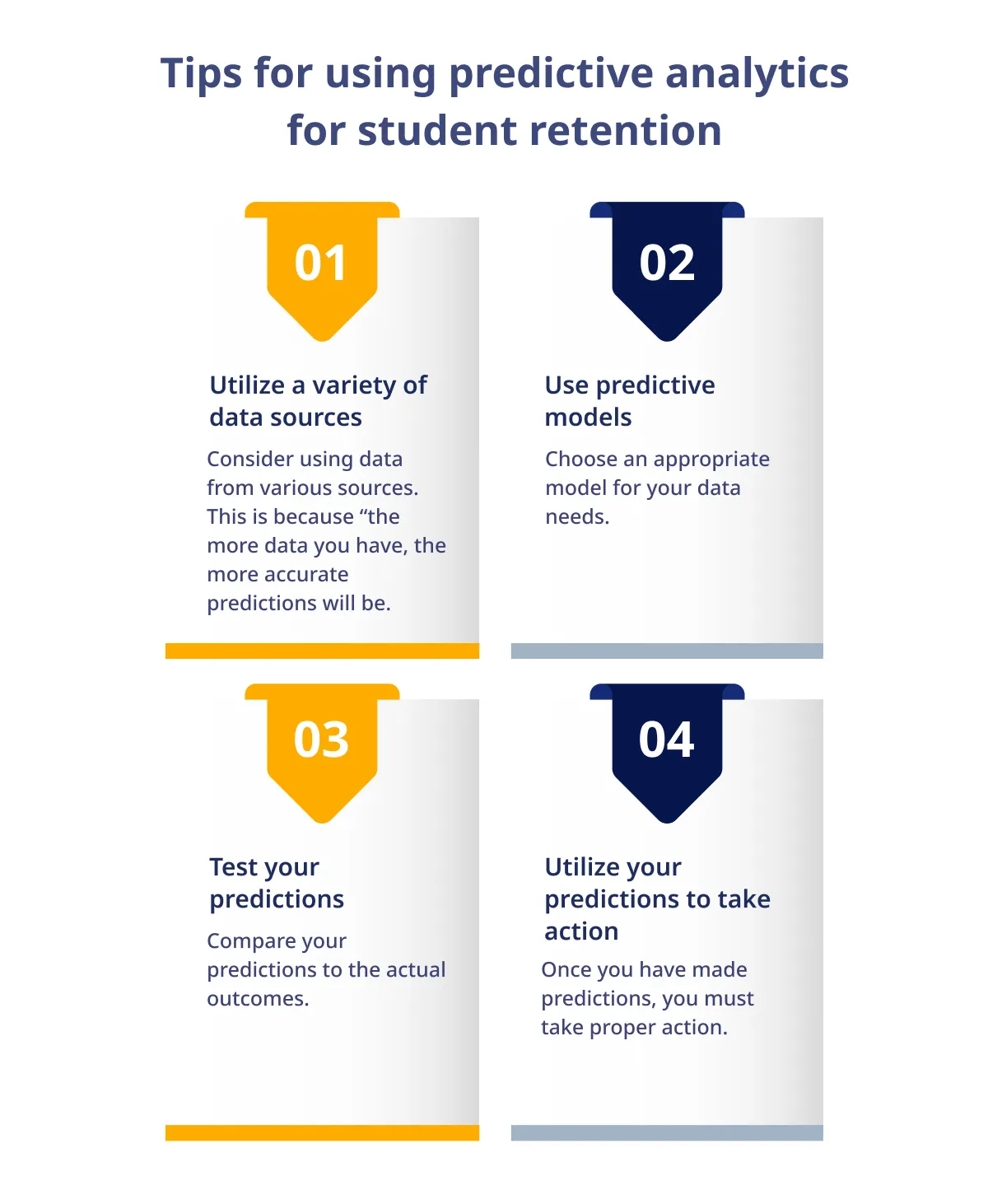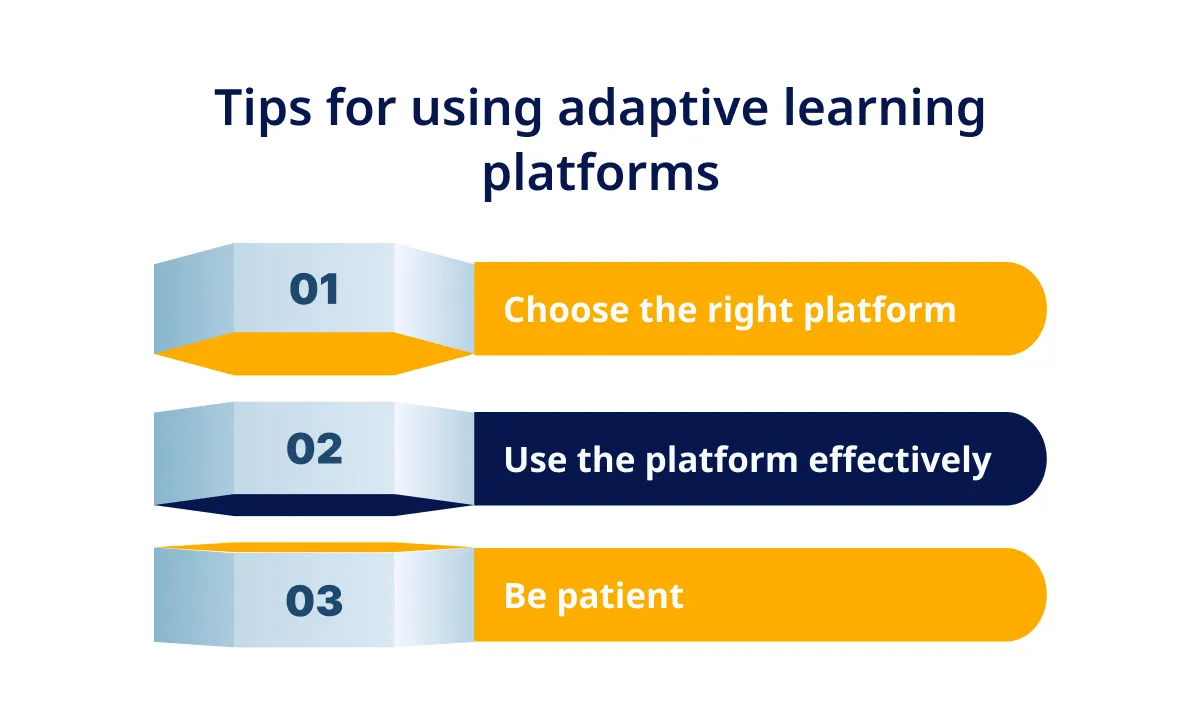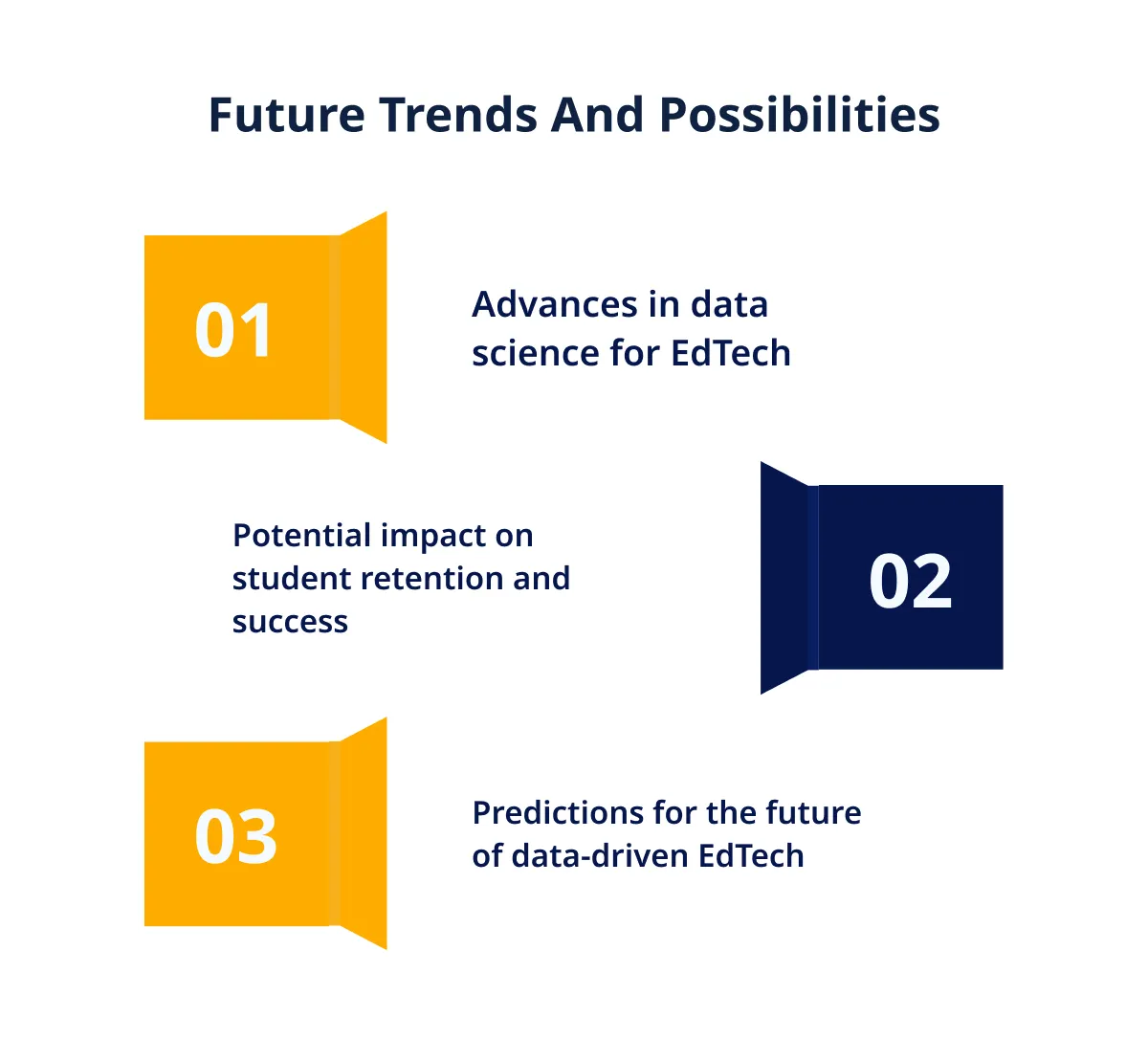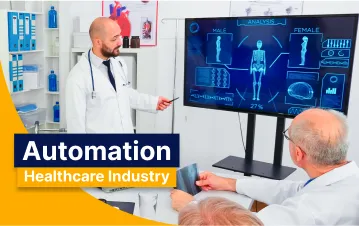In today’s fast-paced, ever-evolving digital landscape, EdTech companies must stay ahead of the curve and adapt to the changing needs of their target audience. While some giants are already leveraging the power of data to revolutionize student retention and growth, others still need to catch up in the race. The industry leaders are crafting innovative marketing campaigns and personalized learning experiences that resonate with students and educators alike.
In this blog, we’ll explore the cutting-edge strategies EdTech giants use to maximize student engagement and retention. We’ll discuss how they use data analysis to identify trends, predict outcomes, and make informed decisions that drive success.
Join us as we uncover the secrets behind the success of these EdTech powerhouses and learn how they’re shaping the future of education through data science.
Importance Of Student Retention And Success In Education
Student retention & success is crucial for EdTechs to attract more students and ensure they thrive and reach their full potential. Its importance in the education sector can be understood by the following:
- When students persist and succeed in their academic pursuits, it reflects positively on the EdTech’s reputation and credibility.
- High student retention rates contribute to a stable and diverse learning community, fostering collaboration, peer support, and a vibrant academic environment.
- Student success is linked to fulfilling their educational goals and aspirations, leading to more significant personal growth and future opportunities.
- Educational stakeholders must create an environment promoting student engagement, motivation, and well-being.
Hence, EdTechs can cultivate a nurturing and rewarding educational experience for their students by prioritizing the above-listed aspects.
Let us help you boost student outcomes
Role Of Data Science In EdTech
Data Science plays a crucial role in the realm of Education Technology. It provides educators and institutions valuable insights to enhance student retention and success.
Data science technology enables collecting, analyzing, and interpreting vast amounts of educational data, providing educators with actionable information to personalize learning experiences.
Data science in education facilitates continuous assessment and progress monitoring, enabling timely feedback and intervention to optimize student outcomes.
Benefits of Data Collection and Analysis for EdTech
Benefits of data collection and analysis in EdTech:
- Personalized learning: With the help of data, EdTech companies can help students learn at their own pace and focus on the areas where they need the most support.
- Improved instruction: Data can be used to identify effective teaching methods and materials. This help teachers improve their teaching practices & provide students with the best possible learning experience.
- Reduced costs: Data can be used to identify areas where costs can be reduced. This helps educational institutions save money and resources.
- Increased student engagement: It creates engaging and interactive learning experiences to help students stay motivated.
Also Read: Top 11 Education & ELearning Software Development Companies
Data Collection And Analysis
Gathering and evaluating data is of the utmost importance in the educational sphere. By examining the facts, educators can better understand their pupils’ progress, spot any weaknesses that require attention, and ultimately make better decisions regarding curriculum, teaching techniques, and assessments.
There are a variety of methods/tools that are used to collect educational data. Some standard methods are given below:
- Student assessments: These provide valuable information about students’ learning progress and measure students’ knowledge, skills, and abilities in different subjects.
- Classroom observations: These provide insights into how students are learning and how well they understand the material. Classroom observations also identify areas where students may be struggling.
- Student surveys: Student surveys provide a platform to capture students’ opinions about their educational experiences. By surveying, you can inquire about students’ likes, study necessities, and contentment with the course material.
- Teacher surveys: These surveys assist in gathering responses from educators concerning their instructional techniques, difficulties faced, accomplishments achieved, and further help in education software development.
Types of data collected in EdTech
- Student demographic data
- Student academic data
- Student behavior data
- Teacher data
- School data
Moreover, data quality and privacy are important considerations when collecting and analyzing educational data. So, must ensure that data is accurate and complete.
Let us help you boost student outcomes
Predictive Analytics For Student Retention
Predictive analytics is a powerful method for identifying students who might not finish school. Educators can use this technology to intervene quickly and supply those students with the required aid to achieve their educational goals.
Some common use cases for predictive analytics in EdTech include:
- Identifying at-risk students: Predictive analytics identifies students (who are at risk of dropping out of school) by analyzing student grades, attendance records, and disciplinary infractions.
- Personalized interventions and support: Once at-risk students have been identified, predictive analytics provide customized interventions and support. This includes mentoring, tutoring, and financial assistance.
- Improving curriculum & instruction: Predictive analytics can improve curriculum and instruction by analyzing student learning outcomes and engagement levels.
Adaptive Learning Platforms
Adaptive learning is a way of providing personalized education by leveraging data to customize the learning experience for each student. Artificial intelligence measures student progress and adjusts the content difficulty to match their skill level. It enables them to progress at their own speed while focusing on areas where extra help is required.
Benefits of using adaptive learning platforms
- Increased student engagement: Adaptive learning platforms keep students engaged by providing them with content that is complex but not overwhelming.
- Improved student outcomes: The platforms help students perform better in exams by giving them the support they need to succeed.
- Reduced costs: The platforms help to reduce costs by providing a more efficient way to deliver instruction.
There are several ways that data science is used in adaptive learning platforms. Some of the key ways data science is used in education are:
- Track student progress: Adaptive learning platforms track student progress & identify areas where they need additional support.
- Adjust the difficulty of the content: Data is employed to customize the complexity of the content per the student’s individual needs.
- Personalizing the learning experience: These platforms use data to personalize the learning experience for every student by offering different content, activities, and feedback.
Give your EdTech an edge over competitors with technology
Intelligent Tutoring Systems
Intelligent Tutoring Systems are computer-based learning programs that offer individualized instruction using artificial intelligence and prompt feedback tailored to the needs of each student. ITSs are designed to give learners a unique experience tailored to their requirements.
Some of the key ways that data science in education is used to improve the effectiveness of ITSs include:
- Tracking student progress: ITSs use data to track student progress and identify areas where they need additional support.
- Adjusting the difficulty of the content: ITSs use data to adjust the content difficulty as needed to ensure that students are challenged but not overwhelmed.
- Personalizing the learning experience: ITSs use data to personalize the learning experience for each student. This can include providing different content, different activities, and different feedback.
- Providing feedback: ITSs use data to provide students with immediate and customized feedback. This feedback helps students to identify their strengths & weaknesses and further improve their learning.
- Assessing student learning: ITSs use data to evaluate student learning. This assessment data can be used to improve the ITS and track student progress over time.
All in all, ITSs are a powerful instrument for raising the educational outcomes of students. As data science technology advances, you will encounter increasingly innovative and effective strategies for using ITSs to improve academic standards.
Ethical Considerations In Data Science For Edtech
Employing data science in education to promote educational growth has significant potential, but it’s essential to be aware of the ethical concerns accompanying it.
Privacy Concerns
Student privacy must be safeguarded when collecting and processing their data. Students must be aware of the data collected on them and how it is employed. Furthermore, students must be free to refuse data collection and analysis.
Transparency
Educators need to ensure transparency when implementing data science course in the classroom, revealing data acquisition’s intentions and its purpose for optimizing the learning process. Students, too, should be allowed to access the information gathered about them.
Balancing Benefits with ethical considerations
Data science can be a tremendous aid to bettering education. However, it is essential to consider its ethical implications and utilize it responsibly to uphold student privacy and keep operations clear.
In so doing, teachers can apply data science in education to better the learning experience without infringing on student rights or failing to be open in their operations.
Also Read: What Are The Top Countries For Education Software Development Services?
Case Studies: Leading EdTech Companies
- Coursera offers students learning experiences tailored to their individual preferences via data science. The company compiles data regarding the student’s learning style, progress, and interests to do this. Then, with this information, Coursera recommends suitable courses, tasks, and other resources to help them succeed.
- Khan Academy employs data science in education to evaluate student growth and discover areas needing additional help. Additionally, this organization utilizes data science to generate tailored learning strategies for every student and has become a famous education software development company.
- Udacity uses data science in education to identify effective teaching methods and materials. This education app development company collects student engagement, performance, and feedback data and uses this information to improve its courses and teaching methods.
Read case study
Future Trends And Possibilities
The future trend & possibilities in Data Science in education hold immense promise as it paves the way for further advancements and transformative impact on student retention and success.
Let’s explore some key aspects shaping the future of this dynamic field:
Advances in data science for EdTech:
Continual advancements in data science present exciting opportunities for EdTech giants to refine and expand their use of data-driven methodologies. Machine learning algorithms, natural language processing, and predictive analytics are evolving to provide deeper insights into student behaviors, learning patterns, and personalized recommendations.
Potential impact on student retention and success:
As data science in education evolves, educators can better identify at-risk students, personalize interventions, and provide timely support. This proactive approach addresses individual needs, boosts engagement, and ultimately increases student satisfaction and achievement.
Predictions for the future of data-driven EdTech:
Looking ahead, data-driven EdTech is poised to continue its transformative trajectory. Integrating emerging technologies like artificial intelligence, virtual and augmented reality will make educational experiences more immersive and interactive. Personalized learning paths and adaptive assessments will be further enhanced, providing tailored guidance and feedback to students.
Conclusion
We have seen that integrating data science in EdTech represents a transformative opportunity for giants in the field to maximize student retention and success. Using this, the edtech industry leaders can gain valuable insights into student behaviors, needs, and performance, enabling personalized interventions and tailored support.
As we envision the future, the evolution of data science in education will continue to shape EdTech, propelling educational institutions toward more significant innovation and effectiveness. So, why wait further?
Let’s connect with our data science experts at ValueCoders.
ValueCoders has been India’s leading software development company since 2004, serving the education sector and other industries globally. Hire software developers who have completed 4200+ projects to date and continue to serve clients across the globe.


